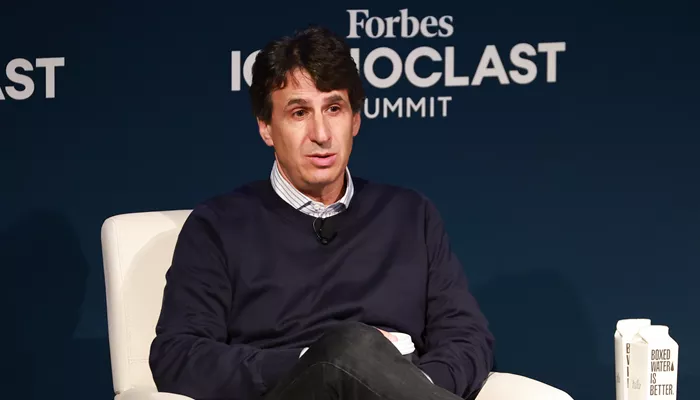President-elect Donald Trump is reportedly considering Marc Rowan, the CEO of Apollo Global Management, for the position of Treasury Secretary, according to a recent report by The New York Times. Sources close to Trump indicate that Rowan has emerged as a leading candidate amid the president-elect’s growing dissatisfaction with other options. This potential appointment could significantly impact the private equity landscape, which is currently valued at approximately $24.4 trillion, as estimated by accounting firm EY earlier this year.
Rowan’s candidacy comes at a time when regulatory bodies have intensified efforts to curb perceived excesses within the private equity industry. The selection of a prominent figure from within the sector could provide a considerable advantage to private equity firms, particularly those like Apollo, Blackstone, and KKR, which dominate the market.
Marc Rowan brings a wealth of experience and connections that could benefit the private equity industry. His vocal support for various Trump administration policies, including strong backing for Israel, has reportedly impressed Trump. Recently, Trump appointed Jay Clayton, another Apollo board member and former SEC chair, as the U.S. attorney for the Southern District of New York—a position known for its focus on white-collar crime. Additionally, former Republican Senator Pat Toomey joined Apollo’s board earlier this year, further solidifying Rowan’s ties to influential figures in Washington.
Rowan’s financial acumen is also noteworthy; he boasts an estimated net worth of $8.6 billion and has personally contributed $1 million to Trump’s 2020 campaign. Reports suggest that he is interested in the Treasury role and is expected to meet with Trump at his Mar-a-Lago estate soon.
Rowan’s potential appointment could signal a shift in how private equity firms are regulated in the United States. Historically, banks played a significant role in facilitating private equity transactions; however, post-Great Recession regulations have pushed many banks to adopt more conservative practices. This shift has allowed firms like Apollo Global Management to expand dramatically. Since 2007, assets under management by Apollo, Blackstone, and Carlyle Group have surged from less than $2 trillion to over $8 trillion today.
Apollo itself has emerged as a leader in this space, managing approximately $733 billion in assets primarily sourced from private wealth clients. Rowan’s leadership could further bolster this growth trajectory and potentially ease regulatory pressures that have been mounting against the industry.
Despite recent attempts by the Securities and Exchange Commission (SEC) to impose stricter oversight on private equity firms—such as proposals requiring detailed quarterly disclosures—these initiatives have faced legal setbacks. In June 2024, a ruling by the U.S. Court of Appeals for the Fifth Circuit vacated these proposed regulations.
In contrast, new rules from the U.S. Treasury’s Office of the Comptroller of the Currency (OCC) are set to take effect on December 31, 2024. These rules will require banks to disclose their exposure to private equity investments, with initial reports expected in early 2025. As Treasury Secretary, Rowan would oversee not only the OCC but also other critical agencies such as FinCEN (Financial Crimes Enforcement Network) and the IRS.
Trump’s previous Treasury Secretary, Steven Mnuchin—who also hailed from private equity—was expected to reduce regulations during his tenure. After leaving office, Mnuchin engaged in lucrative investment deals that underscored his connections within both Wall Street and Washington.
While Marc Rowan appears to be a strong candidate for Treasury Secretary, he is not alone in this race. Other contenders include former Federal Reserve governor Kevin Warsh and Howard Lutnick, CEO of Cantor Fitzgerald. Lutnick’s enthusiasm for the role has reportedly raised concerns among Trump’s advisors about his fit for the position. Scott Bessent, founder of Key Square Capital Management and another candidate, has been characterized as a “business-as-usual” choice by some observers.
Elon Musk’s recent endorsement of Lutnick has added another layer of complexity to this selection process; some Trump advisors have expressed concern that Musk’s influence may be too pronounced.
As President-elect Trump considers his options for Treasury Secretary, Marc Rowan stands out as a candidate who could significantly influence the future of private equity regulation in America. His extensive experience in managing one of the largest private equity firms and his connections within both political and financial circles position him uniquely to advocate for an industry that has become increasingly vital to global finance.
Should Rowan be confirmed as Treasury Secretary, it may herald a new era for private equity firms—one characterized by reduced regulatory scrutiny and enhanced opportunities for growth within an already booming market.
Read more:

